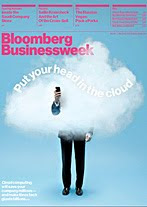Corporate culture may be like pornography. Defining it is tough, but you know it when you see it.
It has rules, ways for people to behave toward one another and the outside world. It has a purpose, perhaps helping a group of people to rally around the company mission. It has history and, indeed, is the legacy of people who’ve created it and pass it on to newcomers. In the end, it’s a means for preserving the tribe and indoctrinating the young.
Corporate culture is also perishable. It can be damaged or destroyed by new managers. Or it can be used by them to help organizations adapt to changing times.
Take BusinessWeek, my employer of 22 years. It was a place whose culture so infused many of us that at times we felt like our first names were “BusinessWeek reporter.” Many of us came to identify so closely with BW that it changed our worldviews. We looked at business, even at life, in different ways, thanks to the values we absorbed, the way we worked and the things we learned at the feet of our elders.
Even now, as I teach journalism students, I share the values I learned at BW. “No story is ever 100% positive or 100% negative,” I tell them, echoing a mantra I learned from a Corporation department editor. Magazine stories are all about point of view, which is what makes them different from most newspaper accounts, I say, echoing longtime editor Steve Shepard. As you take a stance, he’d add, you must give room to dissenting views, even if minimizing them. There’s no such thing as objectivity; there’s only fairness. And — something I learned from my first BW boss, Todd Mason — when at press conferences, keep your mouth shut and ask your questions of sources privately (why share your ideas with rivals?). Finally, you must be analytical, since you’re not being paid to be a stenographer.
There’s much more, of course. I use a guide to writing that longtime correspondent Stewart Toy put together to teach students how to write. It’s wonderful for teaching about anecdotal ledes, nut grafs, developing a theme and balancing it with skepticism, and employing the art of the kicker. It’s the kind of thing I wish I had when in college and grad school so many eons ago. And it reflects some of the corporate culture BW developed over the decades since its founding in 1929.
Bloomberg Businessweek, as it is now called, is a very different place now than when I left 18 months ago. Since then, Bloomberg bought the book, installed new management, changed much of the staff and set up a system in which its 2,300-reporter global network feeds content into the magazine. That’s one heckuva of larger and more potent reporting base that we could have ever hoped to tap, even with a bureau system that boasted some top talent around the world.
Bloomberg has also infused the outfit with its culture. It has brought to bear a sense of egalitarianism, for instance, in which private offices don’t exist and people work cheek by jowl in rows of modest desks in the New York headquarters. Editor Josh Tyrangiel’s desk seems to boast just one perk, proximity to a window, but many others in the organization have the same perk. This culture is well-described in a recent issue of American Journalism Review by Jodi Enda, who coincidentally is a former colleague from a prior employer.
I’m reminded of all this because of an odd dream that awoke me before dawn today. A longtime staffer at BW had died in the dream and another staffer wanted to pay tribute to her. I wound up contacting Keith Felcyn, the longtime chief of correspondents for BW who had hired me, and we talked about how to make this happen. A podcast maybe, I thought. We didn’t use that term, of course, since podcasts didn’t exist when Keith reigned.
Odd as it was, the dream left me feeling warm and fuzzy. I suppose everyone who has left a cherished outfit may feel the same at times. “Back in my day …” and all that.
Nostalgia is only part of the reason former BW staffers stay in touch. There’s an annual reunion (which, sadly, I’ve been unable to attend because of school obligations). There’s a Web site through Linked In. And ex-BW folks — at outfits such as Reuters, Yahoo!, McKinsey, the New York Times, the Wall Street Journal or teaching at various universities — often are in contact. Colleagues such as Chris Roush at UNC and SMU’s Mark Vamos have been invaluable to me as I learn the ropes in teaching. And just next week, Lauren Young of Reuters will graciously speak to a class at Nebraska. Peter Coy and Ron Grover, both still on staff at the book, have similarly done so.
Some of us bump into one another, unexpectedly at times. A few months ago, Rick Dunham of Hearst, Jane Sasseen of Yahoo! and Frank Comes of McKinsey were among several BW vets who wound up joining another veteran, Joyce Barnathan, at a dinner in D.C. for her organization, the International Center for Journalists. The ICFJ sent one of our former BW colleagues, Bob Dowling, to teach in China for a couple years. I’ll be going there under its auspices in the fall.
As I shared a drink with my buds at the D.C. gathering, it was hard to avoid getting choked up and mourning the passing of the culture that had brought us all together – and changed many of us. I suppose such sentimentality underlays my dream about the passing of former colleagues. The place mattered a lot to us all.
Today, networking and helping one another along is part of the reason for maintaining ties, of course. Some of my students will be joining my former colleagues as interns and I hope many more will over time.
But we also keep the lines intact because we have a lot in common. Like Marines or others who live and work in insular or idiosyncratic outfits, we know the rules — at least as they used to be. We were part of something special, a place where talent and mutual respect were held high, and we know what to expect of one another. What’s more, thanks in part to how BW shaped us, a lot of us just like one another. A healthy corporate culture can make that happen.



